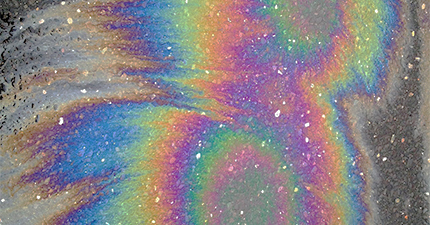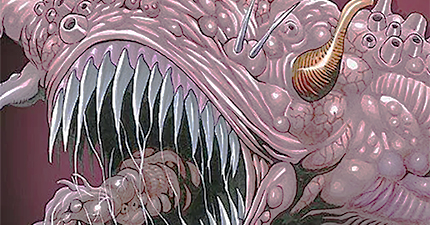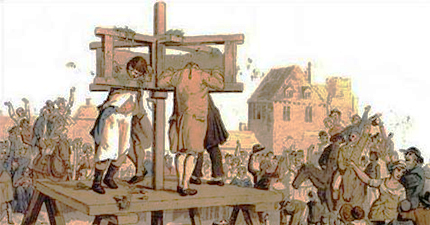Why do we protest? Why is this an important action to take and why is our practice of protesting an important act to carry forward?
I think that, to answer this question, you have to ask yourself why people in power do not want you to protest. Why is it that Trump fears protest so much that he would send in the military and the National Guard to police cities like DC and Los Angeles? What do they fear about trans people coming together so much so that they would classify and dehumanize trans people as terrorists? What are they afraid of when they kill organizers after the media circus leaves?
Yes, protest carries risk and can be dangerous. So why do we do it?
The first time I went to a protest was when I was in the eighth grade. The protest was against Bush’s wars in Afghanistan and Iraq. Out in Iowa, politics are usually more pragmatic than the east coast and we protested the war by citing the deeply unequal amount of funding that reached the Pentagon from the desks of Congress.
As a thirteen year old, that protest was mostly educational. I didn’t really meet people there because you don’t really want to make friends with adults as a teenager and adults don’t want to make friends with you either. But I did learn a lot there. I learned that over 60% of the US budget goes towards the military and that everything else, including healthcare and education and housing, are just tiny slivers on the pie. I learned that Congress is the one who passes the budget and I learned who our House representatives were and why they were in power. These were lessons that I did not learn in school.
Later, I learned how to protest again. On campus occupations, street rallies, and spontaneous actions.
I learned all kinds of things. I learned how debt works. I learned how the transit system works. I learned how to boycott, how to strike, how to force a response from the people who have power if you want one and how to evade their surveillance when you don’t need one. I learned how to take care of a space that you’re not supposed to live on or take care of, how to accept responsibility for and claim spaces that you have been barred from. I learned how to listen and to amplify someone else as an act of listening and care.
I met people too. I met people who had no idea what they were doing with their lives and people who knew exactly what they wanted to do with their lives. I met people from places that I had never been in, people who told me stories about Flint or Arkansas or Texas. I met people who remember things that the history books don’t teach and I met people who taught me how to tell the difference between the grifters and the real ones.
I learned that people are your protection. I remember being at a protest once, one that I stayed at for weeks, where I realized that I could leave my wallet out in the open in a public space without worrying about anyone taking it. Because our protest was formed by us watching out for each other. That was new for me. I had never felt safe like that in a public space and never thought about my lack of safety as abnormal before I experienced what could be.
Did I know that I would learn what I learned before I headed out? That I would meet the people who I met? No way. How could I?
You never know what you’re going to learn at a protest. You also never know who you will meet because you don’t know what will happen.
I don’t know if you’ve noticed but they’ve stopped televising protests or treating them as something worthy of news coverage. I sometimes hear people ask, “What’s the point of protesting?” What’s the point of protesting if the media doesn’t acknowledge you and if people who don’t give a shit continue to not give a shit?
Who gives a shit what they show on the news? Whether a protest makes the news should be the least of your concerns.
The point of protesting? My answer: you never know. You don’t know because you’re actually never sure the possibilities that a protest will produce. You’re never sure what friendships or alliances will be made at one and you’re also never sure what people will learn—what you will learn. How could you? Protests are fundamentally unpredictable. They teach you things that you can’t learn at school and they make you move with people who you would never meet outside of school, work, and religion. They force you onto the streets.
Protests have the power to make unpredictable things happen. You don’t know what the point of them is. Protests are not just planned actions that do the thing that people think they will do. You can’t plan or design for “the point” because you don’t know what possibilities you will conjure up simply by moving your body in protest with other bodies until you get there. You don’t know what the point of a boycott is, what you will learn about what you need or don’t need, until you participate. You don’t know what the purpose of your work is until you learn to strike with other workers. You don’t know what you can use a street for until you use one to protest.
That’s why they are trying to limit, marginalize, and police protests. Because protests are full of people who don’t know what they’re doing, who are open to possibility, who become open to each other. They will provide you with education and connection, responsibility and self respect. You will never know the point of protesting ahead of time. When you protest, you teach yourself how to move your body across an unpredictable future. That is their power.
Stop asking yourself what the point is. That is just your nihilism speaking. Just go and do it. You will find the point later.


